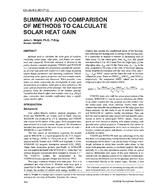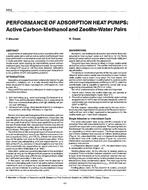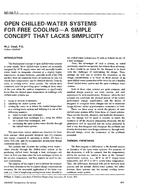The emissions from the residential cooking process have become an important issue as it relates to indoor air quality in homes. The effectiveness usefulness of the range hood, type of appliances, tighter homes, and ventilation standards are factors that must be considered when addressing indoor air quality (IAQ) issues. In addition, kitchen hood design, operator behavior, cooking processes, airflow rates, cooking location, and ventilation configurations all contribute to the capture, containment and removal of the cooking emissions from the kitchen space.
Recent research on residential IAQ has suggested that emissions from cooking can negatively affect a home’s air quality. This study concentrates on the IAQ levels in the kitchens of two 6-unit buildings, each built in 2017 to different energy/construction specifications. One building meets ENERGY STAR for New Construction specifications that includes a direct venting kitchen exhaust hood, and the second building is built to Passive House Institute of the United States (PHIUS) energy/construction specifications that include a recirculating exhaust hood with an energy recovery ventilator (ERV) intake grill located in the kitchen ceiling.
Product Details
- Published:
- 2022
- Number of Pages:
- 8
- Units of Measure:
- Dual
- File Size:
- 1 file , 1.8 MB
- Product Code(s):
- D-LV-22-C056
- Note:
- This product is unavailable in Russia, Belarus


